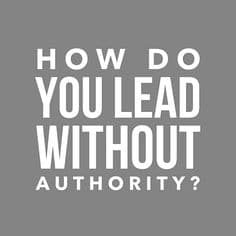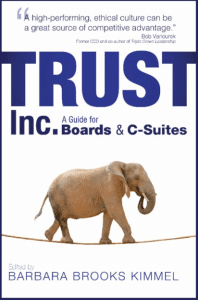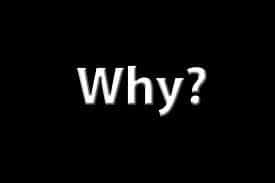
Leading without Authority
Leadership is a complicated subject. Most everyone recognizes good leadership, but there are many varying definitions of leadership, as well as many different versions of what constitutes good leadership. Unfortunately, most examples of good leadership also cite people who are in positions of authority. Such authority gives people hierarchical power to enforce their views, or entices people under the authority leader to just acquiesce to the leader’s initiatives. But what happens when you are in an organization where you don’t have authority? How do you lead from below to people above you in the hierarchy? How do you lead among

The Essence of Entrepreneurship
Entrepreneurs today have a powerful hold on the collective imagination. Look around and notice the many inspiring examples of entrepreneurs in action. But much of what we think we know about entrepreneurship is wrong. What is the essence of entrepreneurship? It turns out that the word “entrepreneurship” has a fascinating history that is actually useful to understanding its essence. Let’s take a quick tour of that history, but starting in the present and working backward. Elaine Rideout of North Carolina State University defines entrepreneurs as those who “creatively initiate, evaluate, and organize to exploit wealth creating business opportunities under conditions

How to Change Your Organizational Culture
Most leaders understand that organizational culture is important. But many struggle with how to change and improve their culture. For too many leaders, culture is too ethereal, too hard to measure, too intangible. So, they muddle along with speeches, slogans, or projects, but their organizational culture refuses to budge. That’s unfortunate because your ideal culture can be created. Culture is the legacy of leadership. In our book, Triple Crown Leadership: Building Excellent, Ethical, and Enduring Organizations, we defined organizational culture simply as “how we do things here”—how people behave. We said, “Culture forms over time and drives what happens when

Is Your Business Stuck in Zombieland?
“Insanity is doing the same thing over and over again and expecting different results.” -attributed to Albert Einstein U.S. government statistics tell us that about half of all new businesses will be gone within five years. Of course, some businesses become successful, often within a few years. These are the models all entrepreneurs hope to emulate. My guess is these stars are likely less than 10% of all new businesses. If I’m right in my conservative guess, about 40% of all new businesses may be stuck in what I’ll call “Zombieland.” Zombieland businesses are half alive and half dead. Their

To Lead Well
I’ll start within, Cultivating quality character, Acting with integrity, Listening with my heart, Composed amid chaos, A soul flooding forth with love. I’ll reach out, Caring and connecting, Serving, Engendering trust, Building relationships, Unleashing others who soar. I’ll step up, Saying “Yes,” Choosing wisely, Embracing change, Striving for what’s right, Pursuing our dreams. I’ll leave a legacy, A team of partners, Companions with courage and character, Leading and following, Creators of worthy deeds, Together undaunted. I wrote this poem at the urging of son, Gregg, who thought it would be a fitting close for my latest book, Leadership Wisdom: Lessons

Does Your Business Need an Advisory Board?
“I was not sure where I was going … But you saw further and clearer than I, … to a place I had never dreamed of …” -Thomas Merton The sad reality is that most businesses fail. The quoted failure rates vary, but they are all dismal. The U.S. Bureau of Labor Statistics says, “About half of all new establishments survive five years or more and about one-third survive 10 years or more.” Many other businesses underperform pitiably. The primary reasons most businesses fail have been summarized this way: Poor leadership, management, planning, location, financial or asset management, partners, or

10 Keys to Self-Leadership
We face a barrage of challenges these days: astonishing technological change, intense competition, a barrage of demands on our attention, tension between work and home, and more. There is one meta-skill that shapes how we respond to all these challenges: self-leadership. Without it, we cannot sustain ourselves for long. Leading self may be obvious, but it is far from easy. We neglect it at our peril. Ten Keys to Self-Leadership The task of leading self is the task of a lifetime. Here are ten keys to self-leadership: 1. Healthy Habits. Leadership is hard work: psychologically, emotionally, and even

The Trust Imperative
Building trust is an imperative to creating a better world. Through my work advocating ethical and values-based leadership, I sometimes see eyes glaze over. “Whose values?” “How do you define what’s ethical?” “Can we really act morally in this rough-and-tumble world?” Fair questions from people trying to survive in a tough, competitive environment. While many of us struggle with what ethics and values mean, almost everyone understands trust. Why? Because we experience it daily in good or bad forms at home and work. We trust our spouse, our children, our colleagues; or we don’t. We have seen and experienced the

The Keys to Success
What are the keys to success? I pondered this question when asked to speak at the recent conference. My task was to define the X factor that, combined with IQ (intelligence quotient) and EQ (emotional intelligence), would lead to success, happiness, fulfillment, and achieving one’s best self. A tall order. IQ is traditionally one’s inherent intelligence level, but Gregg and I went further in our book, Triple Crown Leadership: Building Excellent, Ethical, and Enduring Organizations, citing the “head” qualities that we discovered in our research, including interviews with leaders in 61 organizations in 11 countries. The “head” qualities are raw

Leadership Wisdom: Book Release
Bob’s newest book, Leadership Wisdom: Lessons from Poetry, Prose, and Curious Verse, will be released by Motivational Press soon. The book is a compendium of timeless, inspiring wisdom on leadership from the sages of literature and outstanding leaders written over the centuries right up to the present day. Bob has selected over 70 poems, prose, or speech passages, each with an insightful leadership message. He combines these pearls with engaging commentary from his own vast leadership experience and closes each entry with practical applications that each reader can use immediately. You will hear from an astonishing array of poets, presidents,

A Leadership Lightning Bolt
Early in my leadership quest to “find a better way to lead,” I had the wonderful pleasure to work for Jan and Olga Erteszak, Polish immigrants who had fled the Nazis in Europe and then founded a ladies’ lingerie company in Los Angeles. The Olga Company was the creative leader in this industry, designing and producing fashionable lingerie, sleepwear, and loungewear. I learned so much about creativity from Jan and Olga because we literally practiced creativity in meetings. What fun as we stretched our imaginations. One memorable day, Jan, with a wink and that crooked smile of his, gave me

Why Do You Want to Lead?
I was flying from Cleveland to Chicago to meet my wife, June, and two young sons. They were flying from Los Angeles to meet me for a brief Christmas holiday. I had been “too busy” to fly back to help her cope with our toddler and the baby. (It is really so embarrassing to relate this story now.) I was 29 years old and working nightmare hours for a high-flying firm that was rapidly acquiring companies. My job was to fly out and spend all week, every week, “integrating” the acquired firms. “Integrating” meant consolidating their plants, cutting duplicate costs,

The Problem with Tired Leaders
Are you tired? Stressed? Busy? Just par for the course for today’s leader, right? Wrong. These days, it seems that “busy is the new black.” Busy is in. People boast about how busy they are. When answering a schedule request, they regale you with all the things in their calendar that prevent them from meeting you at the requested time. It’s a game, with busyness an assumed proxy for importance. The Glorification of Busy Anne-Marie Slaughter has described modern workers as “time macho,” with “relentless competition to work harder, stay later,” and travel more. Thus the recent viral meme:

Learning and Development Impacting Your Bottom Line
(guest post by Rachel Kay) One of the biggest challenges you face as a leader when attempting to implement a learning and development (L&D) initiative within your company is convincing the decision-makers that it will benefit the company as a whole. When they can’t see a clear projected return on their investment, they may balk at backing you, so it’s your job to assure them that it’s not going to be a waste of time, money, and resources; in other words, you must have their trust. According to the Thales Learning & Development guide that focuses on this subject, L&D

Set No More Than Six Personal Values
“Values tell you what to do when you don’t know what to do.” -Tom McCoy, executive vice president, CH2M HILL Your personal values are essential. They set your moral compass. They guide your behavior when you are under the stresses of life. Most people have not clearly articulated their personal values, and we strongly encourage you to do so. Recently, someone contacted us with questions about developing her personal values. She had difficulty selecting three to six values, as we recommend, and further wondered if it is advisable to have separate personal values versus work values. Yes, most people have
